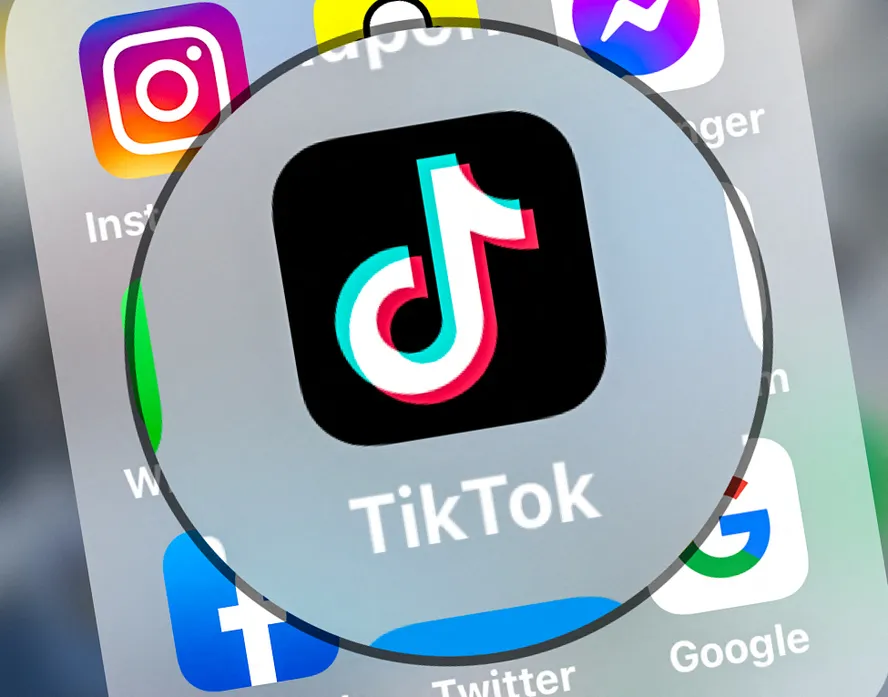A study reveals a significant shift in Generation Z’s behavior: they are moving away from Google and turning to TikTok for their searches. This trend reflects not only a transformation in how people access information but also a new approach to merging entertainment with quick data retrieval.
Previously, Google reigned supreme as the go-to search engine. However, for Generation Z—those born between 1996 and 2010—this reality is rapidly changing.
According to a survey conducted by YPulse and reported by Axios, only 46% of individuals aged 18 to 24 start their searches on Google. This number rises to 58% among those aged 25 to 39.

MaryLeigh Bliss, content director at YPulse, notes that social media platforms have evolved from mere social interaction spaces into genuine highways of information.
The study reveals that 21% of young people now begin their searches directly on TikTok, while only 5% opt for YouTube. This points to a significant shift in online search habits, with Generation Z increasingly turning to social media platforms to meet their informational needs.
Isabela Soller, CEO of the Soller Group and an expert in content creator management, attributes this movement partly to a desire for convenience. TikTok, with its recent updates, is becoming an increasingly robust search platform, offering users the ability to search and consume content all in one place.
Soller highlights TikTok’s improvements to its search mechanisms, which now even include Wikipedia excerpts directly within the app. This not only simplifies the search process but also encourages users to integrate their searches within the environment where they are already immersed, consuming content seamlessly.
TikTok is emerging as a formidable competitor to Google, taking on the role of a new search hub for a generation hungry for instant content and information. This phenomenon is not unprecedented, as the past 30 years have witnessed the rise and fall of various social networks, from the days of MSN, MySpace, and Orkut.
Currently, the conquering app is TikTok, which already hosts a community of over 1 billion users. According to recent data from Adobe, about 2 in 5 Americans turn to TikTok as their preferred search engine.
Issaaf Karhawi, a digital communication researcher at USP, sees this shift as the result of a “lock-in” strategy adopted by Big Tech companies. According to her, these platforms are designed to keep users captive, offering everything they need within a single environment.
TikTok stands out with its unique features, such as the most-searched terms in the comment section and the ability to easily find specific content. These functionalities set TikTok apart not only from other social networks, like Instagram, but also from Google itself.
According to Adobe, consumers turn to TikTok for a variety of content, ranging from recipes and music to DIY tutorials and fashion tips. This trend is especially prominent among Generation Z, with 64% of its members in the U.S. using TikTok as their primary search engine, compared to 49% of millennials.
The USP expert emphasizes that this preference arises because algorithms personalize both content and searches, making the experience more tailored to each user.
The study indicates that 1 in 10 members of Generation Z trusts TikTok more than Google as a search engine, reflecting the effectiveness of algorithms in delivering relevant and engaging results.
Short videos, a hallmark of TikTok, are one of the main attractions for Generation Z. This preference is due to the format’s ability to condense information quickly, creating a sense of accelerated consumption. This dynamic is particularly appealing to young people, who can consume more content in less time. Unsurprisingly, this becomes more profitable for companies, which can insert advertisements more effectively.
The influence of business models is not limited to entertainment but also affects how young people search for and consume information. TikTok not only provides entertainment but also becomes a reliable source of data and knowledge for a generation increasingly connected and eager for information.
Marina Abud, a psychologist and psychoanalyst specializing in the effects of virtuality on contemporary subjects, highlights that viewing moving content, as opposed to static images or written text, brings information closer to individuals.
She describes this experience as akin to connecting with someone through the screen, creating a sense of closeness and intimacy similar to that of a friend telling a story. This intense emotional connection can increase engagement with the content and foster a sense of intimacy with the creator.
However, Abud and other specialists warn of some negative aspects of this process. The creation of information bubbles, where users are exposed only to viewpoints similar to their own, can restrict the diversity of perspectives and information. Additionally, constant comparisons with others and a lack of patience for conducting more in-depth research are growing concerns.
Abud points out that many people are struggling to concentrate on activities requiring prolonged attention, such as finishing a book or attending a full lecture. The constant exposure to quick and engaging stimuli can make it challenging to focus on a single task for extended periods.
These insights highlight the complex interaction between technology and human psychology in the digital age. While viewing moving content can provide a sense of closeness and intimacy, it also brings significant challenges, such as fragmented attention and difficulty committing to deeper, more reflective activities.
As we navigate this new digital landscape, it is crucial to recognize these dilemmas and find ways to balance technology use with our mental health and well-being. This might involve developing strategies to limit time spent on social media platforms, raising awareness about technology’s effects on our cognition, and cultivating mindfulness skills to help us reconnect with ourselves and the world around us.
By doing so, we can make the most of the opportunities offered by technology while mitigating its negative impacts, enabling us to thrive in an ever-evolving digital world.

